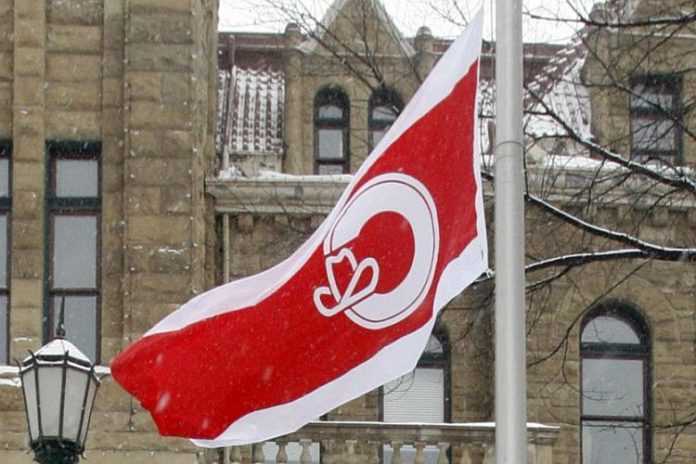Whether Calgary continues its bid for the 2026 Olympic Winter Games has come down to a question of money.
And the bid could end on Monday.
The Calgary 2026 Bid Corporation’s Draft Hosting Plan Concept projected the total cost of the 2026 Olympic Winter Games and Winter Paralympic Games at about C$5.46 billion. (C$1 = $0.76 U.S. at present.)
Of that, some C$2.46 billion would be paid from contributions from the International Olympic Committee, domestic sponsorships, ticket sales and licensing revenues collected by the local organizing committee.
The remaining C$3.01 billion would come from government: federal, provincial and city:
∙ C$1.5 billion from the Canadian government;
∙ C$1.0 billion from the Province of Alberta, and
∙ C$500 million from the City of Calgary.
It hasn’t worked out that way.
Alberta has promised not more than C$700 million and will not be responsible for any overruns. That’s C$300 less than the projected bid had hoped for, and left Calgary potentially responsible for C$800 million. Calgary Mayor Naheed Nenshi said that was a “not a good deal” and that the city should not have to pay more than the province.
One suggestion was to have the International Olympic Committee pay more, but IOC Executive Director for the Olympic Games Christophe Dubi (SUI) – in Calgary last week – said that was not going to happen. The IOC has promised $925 million (U.S.) in support of the 2026 Winter Games, most in cash, but some in services, and does not want to go further. So, perhaps the Canadian federal contribution would make up for it.
On Friday, it was reported that the Canadian government will provide up to C$1.75 billion in funding (in 2026 dollars; about C$1.5 billion in 2018 dollars), but only on a matching basis – as is the usual Canadian federal protocol – of the combined contributions of the provincial and city governments!
So, with Alberta in for C$700 million and no more, that would leave Calgary still on the hook for C$800 million to get the C$1.5 million (2018 dollars) from Ottawa and reach the C$3 billion number.
That’s what Nenshi has called a “bad deal” and the Calgary Herald reported that he sent a letter to Canadian Prime Minister Justin Trudeau stating that the end might be at hand:
“It is clear there has been a tremendous misunderstanding of the nature of the required funding amongst the three government partners and now we are in a position where we cannot show citizens how the required public contribution could be met. …
“If we cannot come to a mutually agreeable conclusion by Monday, I deeply regret that I will have no choice to but request that Calgary City Council cancel the plebiscite and thus terminate the bid; an event none of us want.”
Nenshi’s threat to terminate the bid would also obliterate the public referendum scheduled for 13 November, in which the citizens will vote on whether to have the bid continue.
This is pretty wild stuff and there are many ways in which the federal government could decide to agree to provide more funding. And having this kind of tug-of-war just a couple of weeks before the referendum could help defeat it; recent polls showed a small majority voting in favor of the Games bid, but this could be turned around quickly in the face of bad publicity on financing.
But the truth is that this entire discussion, in public, is exactly what should be taking place.
Cities, provinces and the national government of any city and country which wants to host something as costly as the Olympic Games should be discussing it openly. And if it’s a bad deal for the city or country, then skip the bid.
Do the benefits outweigh the costs? On what basis is a city willing to have a Games? Already, the Stockholm city government has said it will not financially support the 2026 bid from the Swedish Olympic Committee and the SOK says it can host the Games with private financing. The Italian bid for Milan and Cortina d’Ampezzo does not appear to have federal financial support, but the two regions in which these cities are located are apparently ready to shoulder the burden (note “apparently”).
Even if the Games had a net cost of zero, there will be considerable activity, irritation and inconvenience for the host city as the Games are organized. There are real benefits to hosting the Games, especially the severely increased attention to the host city, significant economic activity and the opportunity – almost impossible otherwise – to make infrastructure and social changes on a rapid timetable as the Games approach.
Other cities have faced this issue, including Los Angeles in 1984, where no city funding was available at all. That pressure created the marketing and operational changes that power the Olympic Movement to this day. This realpolitik discussion about the 2026 Winter Games and how it is funded in Calgary is good for that city and for the Olympic Movement, no matter what the outcome, on Monday or on 13 November.
Rich Perelman
Editor


















